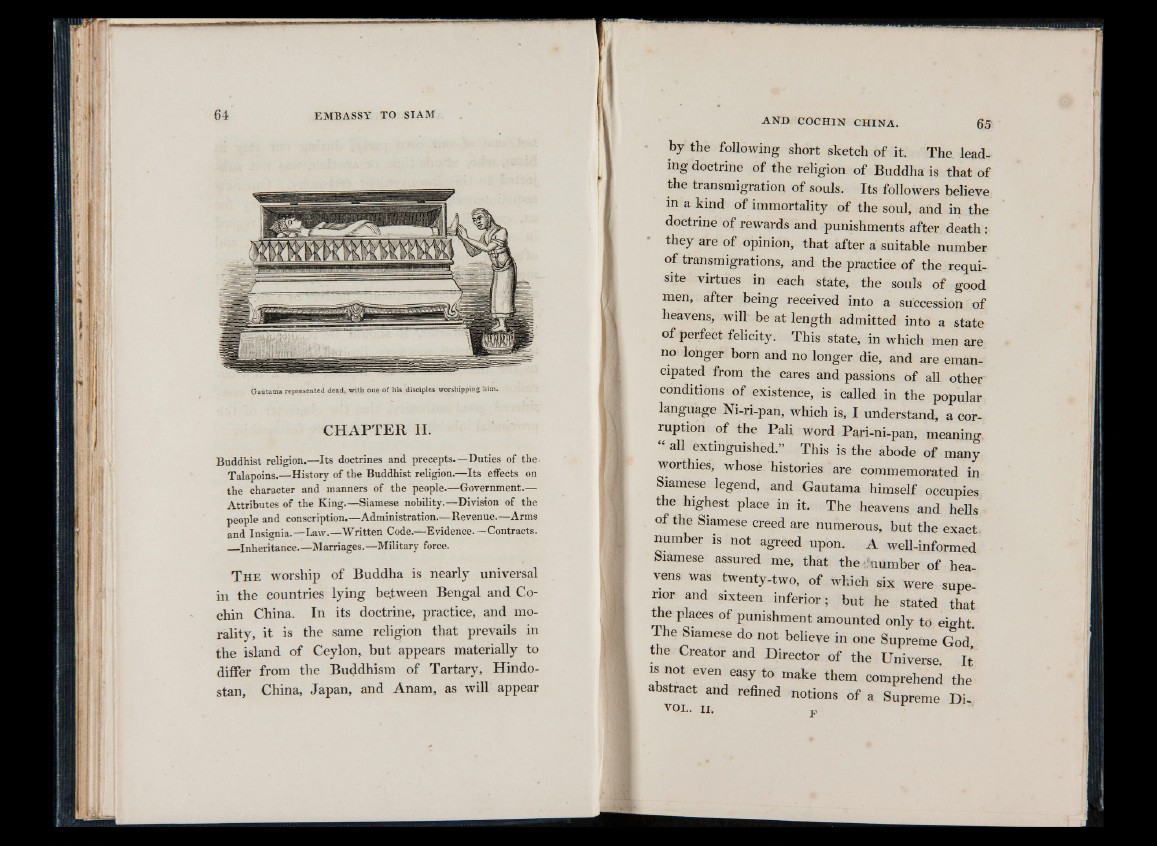
Gautama represented dead, with one of his disciples worshipping him.
C H A PT ER II.
Buddhist religion.—Its doctrines and precepts.—Duties of the
Talapoins.— History of the Buddhist religion.— Its effects on
the character and manners of the people.—Government.—
Attributes of the King.—Siamese nobility.—Division of the
people and conscription.—Administration*—Revenue.—Arms
and Insignia.—Law.—Written Code.— Evidence.—Contracts.
Inheritance. —Marriages.—Military force.
T h e worship of Buddha is nearly universal
in the countries lying between Bengal and Cochin
China. In its doctrine, practice, and morality,
it is the same religion that prevails in
the island of Ceylon, but appears materially to
differ from the Buddhism of Tartary, Hindostán,
China, Japan, and Anam, as will appear
AND COCHIN CHINA. 65
by the following short sketch of it. The. leading
doctrine of the religion of Buddha is that of
the transmigration of souls. Its followers believe
m a kind of immortality of the soul, and in the
doctrine of rewards and punishments after death :
they are of opinion, that after a suitable number
of transmigrations, and the practice of the requisite
virtues in each state, the souls of good
men, after being received into a succession of
heavens, will' be at length admitted into a state
of perfect felicity. This state, in which men are
no longer born and no longer die, and are emancipated
from the cares and passions of all other
conditions of existence, is called in the popular
language Ni-ri-pan, which is, I understand, a corruption
of the Pali word Pari-ni-pan, meaning
“ all extinguished.” This is the abode of many
worthies, whose histories are commemorated in
Siamese legend, and Gautama himself occupies
the highest place in it. The heavens and hells
of the Siamese creed are numerous, but the exact,
number is not agreed upon. A well-informed
Siamese assured me, that the d um b e r of heavens
was twenty-two, of which six were superior
and sixteen inferior; but he stated that
the places of punishment amounted only to eight.
The Siamese do not believe in one Supreme God
the Creator and Director of the Universe It
is not even easy to make them comprehend the
abstract and refined notions of a Supreme Di-
VOL. I I . F